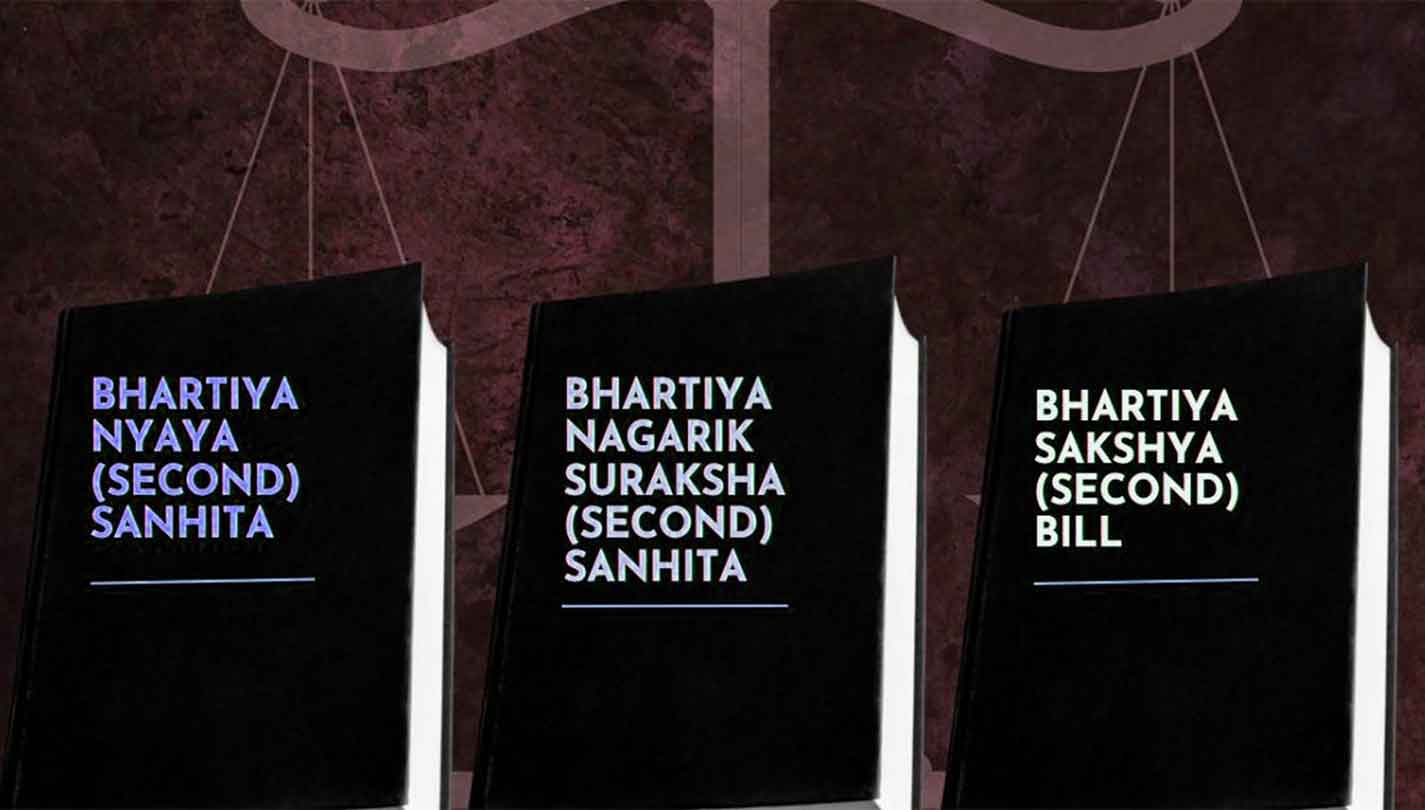Passage Of Criminal Law Bills To Replace IPC, CRPC And Evidence Act Is Unconstitutional

All India Lawyers Association For Justice (AILAJ) in statement issued on December 21 noted that the new criminal law bills - the Bharatiya Nyaya Sanhita, the Bharatiya Nagarik Suraksha Sanhita and the Bharatiya Sakshya Act – are a blatant demonstration of unconstitutional use of power by the ruling dispensation.
The Lok Sabha on December 20 passed the three bills that seek to replace the Indian Penal Code, Code of Criminal Procedure and the Indian Evidence Act.
AILAJ further noted that on one hand, the provisions of these bills are regressive and expand the scope of legal State excess. On the other, the passage of these bills at a time when as many as 141 opposition Members of Parliament are under suspension amounts to undemocratic bulldozing through of laws that will have massive constitutional repercussions.
It may be kept in mind that the version of the Bills passed is a revised version. On 11.08.2023, the initial version of the Bills had been introduced, to which AILAJ had given a detailed response. AILAJ had revealed how bills effectively sanction a total breach of Fundamental Rights by the State authority in a number of ways, including inter alia bringing in of overbroad offences, diluting the right to free and fair trial, attacking the presumption of innocence. Moreover, it was raised that the Bills were passed in contraventions of the Pre-legislative Consultation Policy 2014, issued by the Ministry of Law and Justice and amounted to a subversion of parliamentary process.
However, most of the problematic clauses have been retained. For example, despite an undertaking to the Supreme Court, the Government has incorporated heavy penalties for an overbroad definition of sedition, without using the phrase sedition.
Another alarming change proposed in, the new law is to extend the duration of police custody from the existing 15 days to 60 or 90 days (depending on the offence) which raises significant apprehensions. This prolonged custody period could expose the accused to intimidation, torture and danger, thus infringing upon their right to life and right to a fair trial. In fact, the existing custody period requires to be reduced, but the Bills significantly extend them. It may be noted that after the issuance of the first version of the Bills, they were sent to a Standing Committee for further consideration. The Committee had noted that extended police custody might have potential for misuse, while stating in its report that “There is a concern that this clause could be vulnerable to misuse by authorities, as it does not explicitly clarify that the custody was not taken in the first fifteen days either due to the conduct of the accused or due to extraneous circumstances beyond the control of the investigating officer. The committee recommends that a suitable amendment may be brought to provide greater clarity in the interpretation of this clause.” However, the same is not incorporated in the Second Version.
Several vital issues were raised by opposition leaders even in the absence of the vast majority, including the failure to include the DK Basu guidelines on arrest, the highly restricted bail provisions and the draconian provisions pertaining to terrorism and sedition. However, the failure to adequately subject these bills to consultation and debate will have drastic consequences.
The Union government has retained the name of the three bills despite severe opposition from several quarters that this amounts to Hindi imposition.
A genuine and legitimate attempt to reform criminal law would have been very different. For example demands pertaining to the need to abolish the exception for marital rape, the need to repeal draconian legislation such as UAPA, the need to strengthen the right to bail, the need to reduce time periods for police and judicial custody etc. could have been considered. These Bills are a stamp on the police state and the farcical exercise conducted in passing these Bills makes a mockery of parliamentary democracy. . This does not augur well for our democracy and betrays the aspirations of a transformative constitutionalism.
As first defenders of the Constitution, the legal fraternity must come together to oppose this unconstitutional exercise and demand that these Bills are not brought into effect. The legal fraternity has to expose the farce of so-called decolonisation of laws for what it really is - entrenchment of colonial police powers for the curtailment of civil liberties and the dawn of a formal police state.
Charu Bhawan, U-90, Shakarpur, Delhi 110092
Phone: +91-11-42785864 | +91 9717274961 E-mail: info@cpiml.org

